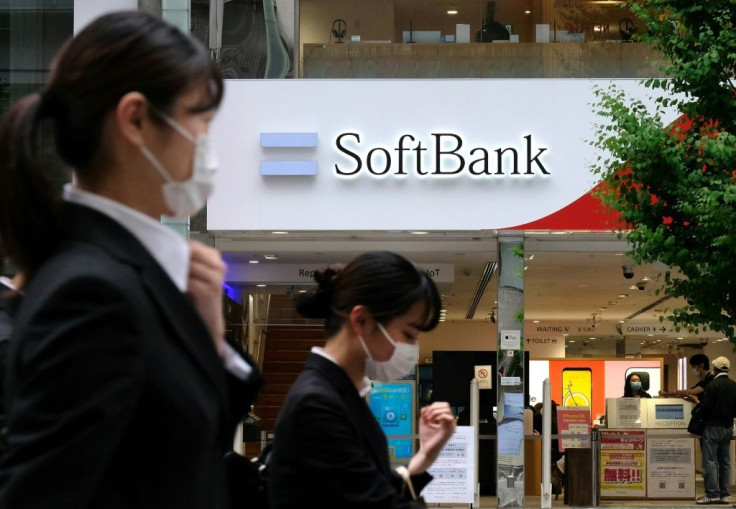SoftBank Group Begins Process Of Unloading T-Mobile Shares

KEY POINTS
- The sale represents about 65% of SoftBank Group’s total stake in T-Mobile
- Deutsche Telekom owns 43.6% of T-Mobile
- Proceeds from the sale will be used by SoftBank Group to reduce debt and buy back shares
Japanese tech conglomerate SoftBank Group, reeling from losses at several of its affiliated startups, has formally started the process of selling up to about 198 million shares of T-Mobile (TMUS) valued at about $21 billion.
The overall transaction are part of a complex deal involving various parties.
The sale represents about 65% of SoftBank Group’s total stake in T-Mobile. Prior to the sales, SoftBank Group owned about 24.6% in T-Mobile. SoftBank Group also granted Deutsche Telekom, which owns 43.6% of T-Mobile, call options to acquire its remaining T-Mobile shares. These call options will expire in 2024.
Many of the shares unloaded by SoftBank Group will be purchased by T-Mobile itself.
T-Mobile said on Monday that it will offer about 134 million of the shares sold by SoftBank Group in the transaction to the public. T-Mobile also plans to sell up to 30 million shares to a Delaware statutory trust.
Marcelo Claure, a director at T-Mobile and also CEO of SoftBank Group International, a subsidiary of SoftBank Group, will purchase 5 million of the shares after they are sold to T-Mobile.
Claure will purchase the shares by using proceeds of a loan from SoftBank Group itself.
SoftBank Group will pay T-Mobile a fee of $300 million for facilitating the transactions.
Proceeds from the sale will be used by SoftBank Group to reduce debt and buy back shares.
The company needs to raise cash after its tech-heavy Vision Fund incurred losses of $18 billion, partly due to write-downs of investments in WeWork and Uber Technologies Inc. (UBER)
SoftBank Group posted an operating loss of about $11.7 billion in the fiscal year ended in March.
In March, SoftBank Group said it wanted to raise a total of $41 billion from such sales.
SoftBank Group shares have more than doubled in value since the pandemic struck in March. CEO Masayoshi Son plans to sell or cut the company’s stakes in various other companies, including Chinese online giant Alibaba Group (BABA). SoftBank Group also plans to sell a 5% stake in its Japanese wireless subsidiary,
SoftBank Group “needs to further enhance its cash reserves,” the company said on Tuesday, citing concerns about “a second and third wave of spread of Covid-19.
While the stock sales have pleased investors like New York-based hedge fund Elliott Management Corp, they have nonetheless raised worries among credit ratings agencies about SoftBank Group’s overall financial health.
In March, S&P Global Ratings cut SoftBank Group's credit rating outlook from "stable" to "negative." That same month, Moody’s cut its rating on SoftBank Group debt by two notches, prompting criticism from the company.
Separately, some SoftBank Group executives are also expected to be hurt by their complex structured investment in German payment processor Wirecard, which is now engulfed in a huge accounting fraud scandal.
The Financial Times reported that the recent collapse in Wirecard shares wiped out hundreds of millions of dollars of profits for a group of SoftBank Group executives and an Abu Dhabi sovereign wealth fund.
Last year, a unit of SoftBank Group called SoftBank Investment Advisers, or SBIA, structured a €900 million ($1 billion) investment in Wirecard through a convertible bond. However, SBIA quickly reduced its exposure to Wirecard through the sale of new bonds exchangeable for Wirecard’s stock.
Credit Suisse then sold the €900 million debt instrument to a group of other investors, “which essentially allowed SBIA to fund its entire investment without putting in a cent of its own money, while also gaining tens of millions of [dollars of] upfront cash profits.”
The “structured equity” trade was formulated by Akshay Naheta, a former Deutsche Bank trader and associate of Rajeev Misra, who now heads the Vision Fund from London.
Now Wirecard’s troubles may spill over to SoftBank Group.
“While we took the unproven allegations of financial irregularities [at Wirecard] seriously, we had no reason to believe there was fraud and we strongly pushed the company to initiate the independent audit that uncovered it,” SBIA told the Financial Times.
© Copyright IBTimes 2025. All rights reserved.





















